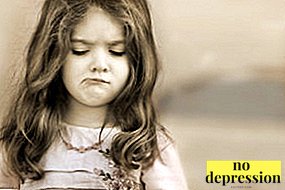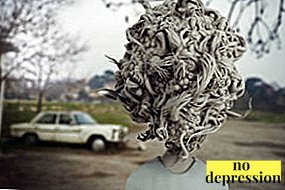Unlike other living beings, man has a dual nature. On the one hand, his behavior is influenced by the features of anatomy, physiology, and psyche. On the other - he obeys the laws of society. If in the first case we are talking about the formation of a person as an individual, then in the second one there is a development of personality. What is the difference between these processes? What is personality? Why is it formed in society? What are the stages in their cultivation? Are there many levels of personal development? What mechanisms trigger this process? Consider this topic.
What is personality development?
Personality development is an element of the general formation of a person, associated with his consciousness and self-consciousness. It concerns the sphere of socialization, since outside the society a person lives according to the laws of the animal world. Personality is formed through interaction with other people. Alone, without cultural contact and information sharing, this process is not possible. To avoid confusion, here are the following related concepts:
- Person - representative of the species Homo sapiens;
- Individual (individual) - a single organism capable of independent existence;
- Personality - The subject of socio-cultural life, endowed with reason, morality, spiritual qualities.
Accordingly, personal development determines those aspects of life that separate us from animal nature, endows with socially significant qualities. Do not confuse this concept with personal development, which covers all possible areas, including physical form, level of intelligence or emotionality. Personal development is associated with self-identification. It is not opposed to other kinds of cultivation, justifying the statement "in a healthy body is a healthy mind."
By the way, the levels of personal development partly replicate its needs, reflected in the Maslow Pyramid. The initial stage is the satisfaction of the functions necessary for life, gradually rising to the level of spirituality and self-awareness.
Personal development levels
There are a lot of classifications of the structure of personal development. Averaged out seven basic levels that are proposed by Russian sociologists Dmitry Nevirko and Valentin Nemirovsky. According to their theory, people combine the following successive levels of formation:
- Survival - preservation of physical integrity;
- Breeding - reproduction and material consumption;
- Control - ability to answer for oneself and others;
- The senses - knowledge of love, mercy, benevolence;
- Perfection - the desire for expertise and creativity;
- Wisdom - improvement of the intellect and spirituality;
- Enlightenment - connection with the spiritual principle, a feeling of happiness and harmony.
Anyone should ideally complete each of these levels. At the same time, the process of personal development is connected with life lessons. If someone jumps over the "level", then he will have to catch up. The man "stuck" on one of the levels, just had not yet learned his lesson, and perhaps just had not yet received it. Either he passes another lesson, or is not yet ready for a new one. One of the first motives of personal development is self-affirmation, which is later replaced by concern for one’s neighbor. It is this transition from egocentrism to empathy (sympathy) - one of the most difficult and responsible stages of improvement. We will talk more about this process in the next section.
Stages of personal development
Most of them go through the same natural stages of formation. They are due to physiological and mental characteristics. Each age has its own tasks and life lessons.
A complete description of these processes includes the theory of personal development, formulated by the American psychologist Eric Erikson, and including a description of normal and undesirable variants of events. According to this teaching, the following can be distinguished fundamental tenets:
- The stages of personal development are identical in all;
- Cultivation does not stop from birth to death;
- Personality development is closely related to the stages of life;
- Transitions between different stages are associated with personality crises;
- During the crisis, the identity of the person weakens;
- There is no guarantee in the safe passage of each of the stages;
- Society is not an antagonist for a person in his cultivation;
- Formation of individuality involves the passage of eight stages.
Psychology of personality development is closely related to the flow of physiological processes in the body, which differ in each particular age. In psychotherapeutic practice, it is customary to single out such personality development stages:
- Oral phase - the first period of the infant’s life, building a system of trust and distrust;
- Creative phase - the preschool period of life, when the child himself begins to invent activities for himself, not just imitating others;
- Latent phase - covers the age from 6 to 11 years, manifested in the growing interest in the new;
- Teenage phase - the period from 12 to 18 years, when there is a cardinal revaluation of values;
- Beginning of maturity - time of closeness or loneliness, search for a partner for family formation;
- Mature age - a period of reflection on the future of new generations, the final stage of socialization of the individual;
- Old age - A balance between wisdom, understanding life, a sense of satisfaction from the path traveled.
Each stage of personal development introduces something new to its self-identification, even if physical or mental improvement is stopped, due to the physiological characteristics of a particular age. This is the phenomenon of personality development, which does not depend on the state of the organism as a whole. Strength or intelligence can be improved to certain indicators until aging occurs. Personal development does not stop in extreme old age. In order for this process to continue, there must be factors stimulating improvement.
Personal development driving forces
Any improvement implies a way out of the comfort zone. Accordingly, the conditions of personal development also “push” a person out of his usual environment, forcing him to think differently. The main mechanisms of personal growth include:
- Separation - acceptance of one’s individuality;
- Identification - self-identification of a person, search for analogues;
- Self-esteem - the choice of its "ecological niche" in society.
It is these mechanisms of personal development that make it necessary to reconsider one’s attitude towards life, to leave the comfort zone, to improve spiritually.
After the question of self-esteem and satisfaction of his "ego", a person thinks about helping other people, his mark in history. Further, individuals move to the stage of spiritual enlightenment, trying to realize the universal truth, to feel the harmony of the universe.
The main mechanism of "vertical" transitions is the "horizontal" accumulation of experience and knowledge, which allows you to rise to a qualitatively high level of personal development.
Since man is a biosocial phenomenon, his formation is subordinated to a number of factors, including the animal and spiritual component. Personality development begins when lower levels of existence are satisfied. You should not think that other aspects of life are less important, because emotions, strength and intellect also form the personality of a person, help him to fully develop spiritually.



